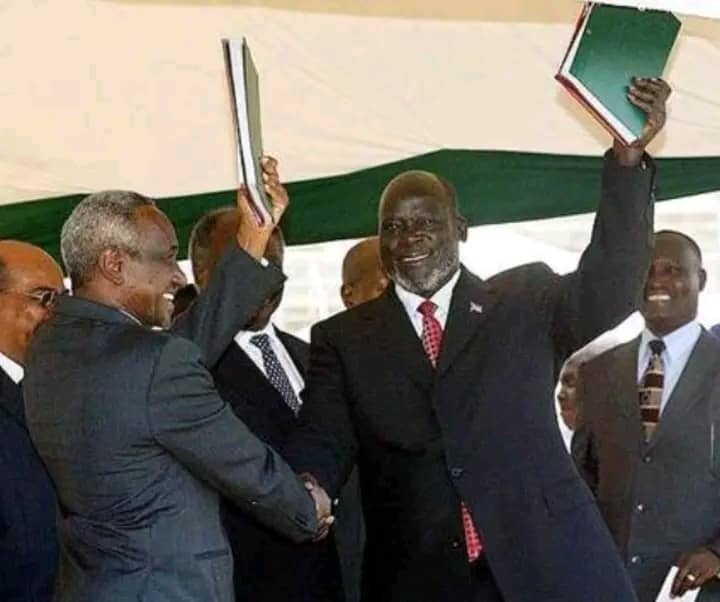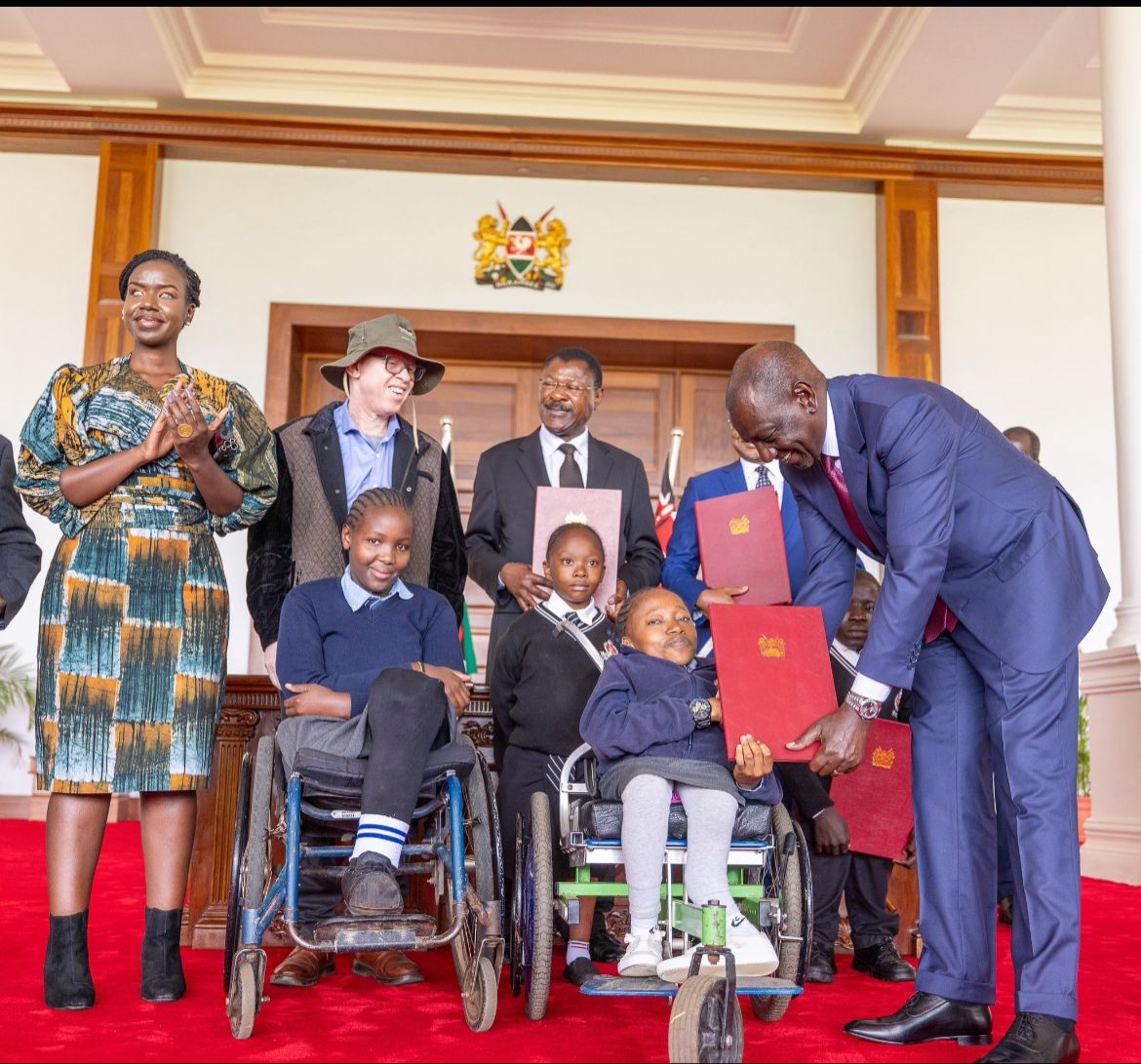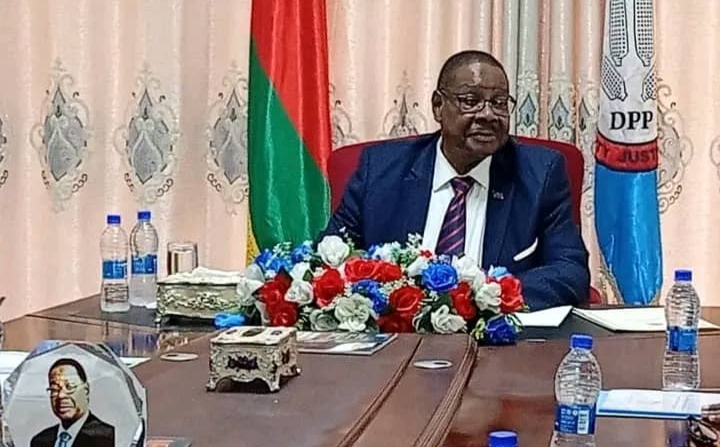Celebrating 20 Years Of Comprehensive Peace Agreement In South Sudan: A Milestone Of Resilience And Hope.

By Debora Akur Chol, South Sudan
South Sudan on Thursday, marked a significant milestone in its history, 20 years since the signing of the Comprehensive Peace Agreement (CPA) that ended decades of conflict and paved the way for the country’s independence.
The agreement, signed on January 9, 2005, in Naivasha, Kenya, between the Sudan People’s Liberation Movement/Army (SPLM/A) and the Government of Sudan, brought an end to the Second Sudanese Civil War and laid the foundation for South Sudan’s eventual independence in 2011.
The CPA, hailed as a triumph of diplomacy, outlined the steps toward ending the civil war that had ravaged Sudan for over 20 years.
It provided for the establishment of a power-sharing government in Khartoum, the creation of an autonomous South Sudanese region, and the holding of a referendum on self-determination for the people of South Sudan, which eventually led to the country’s birth as the world’s newest nation on July 9, 2011.
As South Sudan celebrates the 20th anniversary of the CPA, it is an opportunity to reflect on the immense strides made since then, as well as the challenges that remain.
The signing of the CPA was a turning point in the lives of millions of South Sudanese people. It laid out a roadmap for peace and stability after decades of war, allowing for the establishment of the Government of Southern Sudan (GoSS) in 2005. The peace agreement provided the people of South Sudan with the hope of a better future, with provisions for power-sharing, wealth-sharing, and the protection of human rights.
One of the major successes of the CPA was the smooth transition to the 2011 referendum, in which 98% of South Sudanese voted for independence, solidifying their desire for self-rule and autonomy. Following independence, the country began to build its own institutions, set its own policies, and develop its oil-rich economy.
The CPA also brought about critical improvements in infrastructure and health services. International aid and investment, boosted by the peace agreement, enabled South Sudan to improve road networks, build schools, and enhance access to healthcare in a country long deprived of basic services.
Despite the achievements, South Sudan has faced tremendous challenges on its journey of nation-building. In 2013, just two years after independence, the country descended into a brutal civil war, driven by political divisions within the ruling party. The conflict devastated the nation, causing untold suffering and displacing millions of people both within the country and across borders.
The 2013 civil war officially ended in 2018 with the signing of a peace agreement brokered by the Intergovernmental Authority on Development (IGAD). While the peace process has been slow, South Sudan has made strides toward stability and reconciliation, with the formation of a unity government in 2020, which remains fragile.
Today, 20 years after the CPA, South Sudan faces ongoing challenges, including political tensions, ethnic conflicts, poverty, and the impact of climate change. Despite these hurdles, many South Sudanese remain hopeful and committed to realizing the dreams of the peace agreement, striving for a peaceful and prosperous future.
“We may have faced many difficulties, but the CPA gave us the opportunity to hope for a better life,” said Emmanuel Kembe, a musician who happens to celebrate his birthday today . “We know the road ahead is tough, but we have come this far, and we will continue working for peace, I was just 36 years old when CPA was signed and it feels great to have watch what came with it.” Kembe added during a phone interview with African Culture TV
The CPA’s legacy is multifaceted. While it succeeded in ending the war and facilitating the birth of South Sudan, it also demonstrated the complex nature of peacebuilding in a country deeply divided by years of conflict. The road from the signing of the CPA to the creation of South Sudan was never smooth, but it was a crucial foundation for the world’s youngest nation.
As South Sudan reflects on this two-decade journey, experts emphasize the importance of continued efforts toward national reconciliation and unity. “The CPA was an incredible achievement, but it was just the beginning of a long road toward peace and stability,” said Ajak Deng one of the political activist who was present in Naivasha when CPA was signed. “We need to honor the vision of the peace agreement by fostering inclusivity and ensuring that every citizen has a stake in the future of our country
South Sudan’s international partners, including the United Nations, the African Union, and neighboring countries, continue to play a pivotal role in supporting the peace process. Humanitarian aid, peacekeeping operations, and diplomatic engagement are crucial to ensuring the country stays on the path to lasting peace.
As South Sudan moves forward, it must focus on strengthening its institutions, resolving internal conflicts, and addressing the economic challenges that have been exacerbated by war and instability. Ensuring that peace dividends reach ordinary citizens and creating opportunities for young people to lead the country into the future are key steps in ensuring the CPA’s success is not forgotten.
Twenty years after the signing of the CPA, South Sudan stands at a crossroads. While the challenges are formidable, the spirit of the agreement endures. It is a reminder that peace, though fragile, is possible even in the most difficult of circumstances.
As the country reflects on the 20th anniversary of the CPA, it honors the sacrifices of those who fought for peace and independence, and it renews its commitment to building a prosperous and unified South Sudan. The people of South Sudan continue to dream of a future where the promises of the Comprehensive Peace Agreement are fully realized—a nation at peace with itself and with its neighbors.
categories
recent posts





